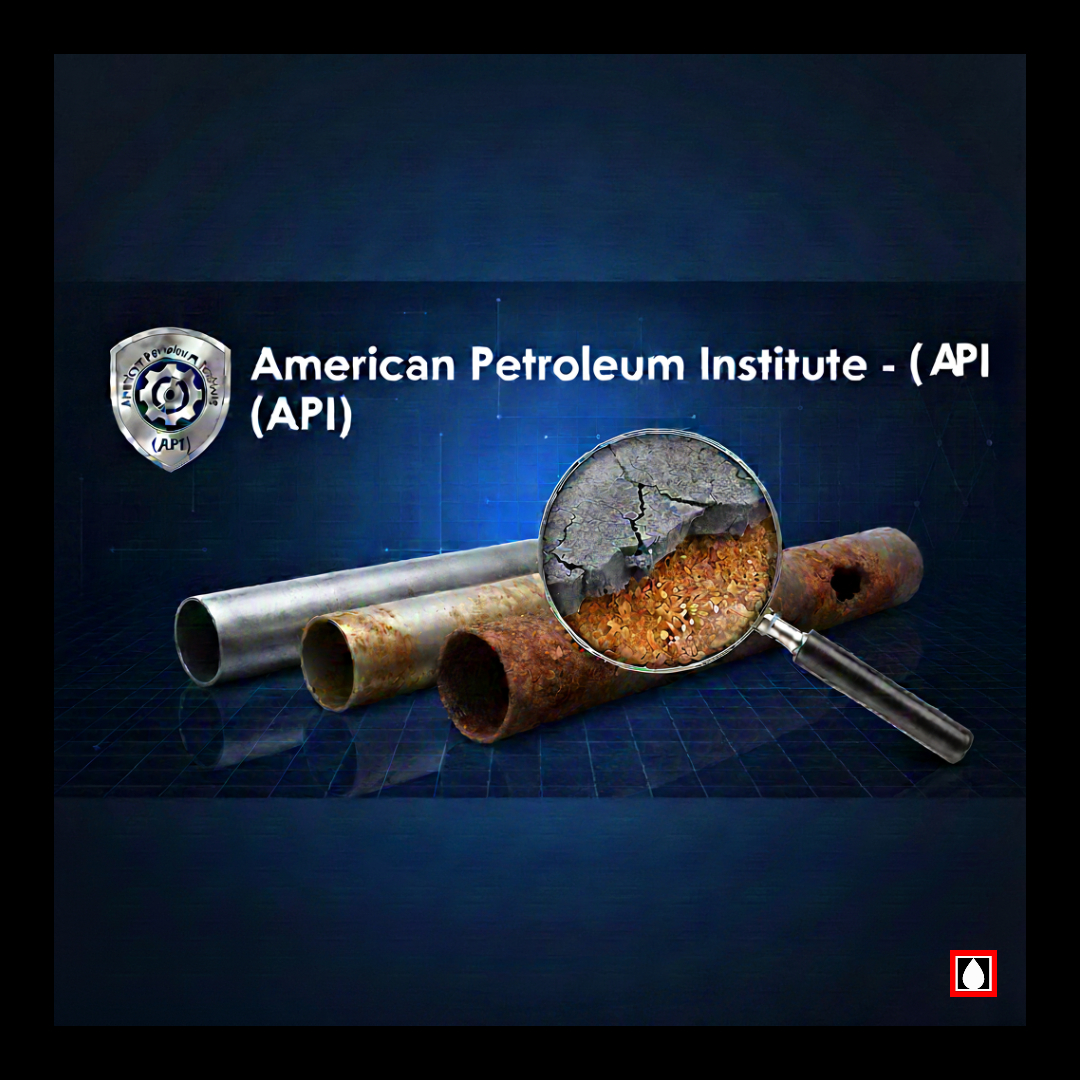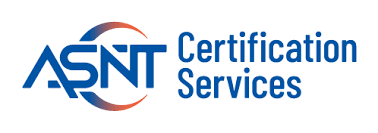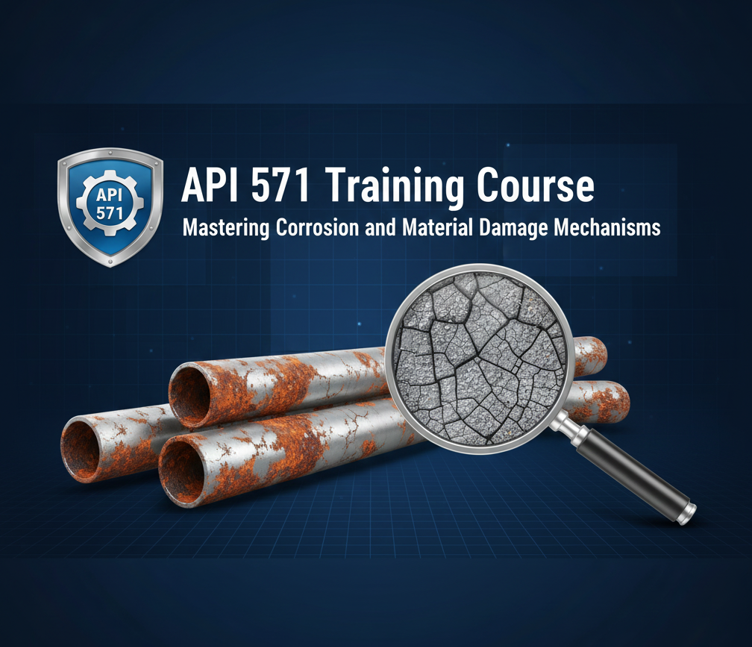American petroleum institute standards
| Spec. 5L | Line Pipe |
| Spec. 6D | Pipeline Valves |
| Spec. 6FA | Fire Test for Valves |
| Spec. 12D | Field Welded Tanks for Storage of Production Liquids |
| Spec. 12F | Shop Welded Tanks for Storage of Production Liquids |
| Spec. 12J | Oil and Gas Separators |
| Spec. 12K | Indirect Type Oil Field Heaters |
| Std. 594 | Wafer and Wafer-Lug Check Valves |
| Std. 598 | Valve Inspection and Testing |
| Std. 599 | Metal Plug Valves - Flanged and Butt-Welding Ends |
| Std. 600 | Steel Gate Valves-Flanged and Butt-Welding Ends |
| Std. 602 | Compact Steel Gate Valves-Flanged Threaded, Welding, and Extended-Body Ends |
| Std. 603 | Class 150, Cast, Corrosion-Resistant, Flanged-End Gate Valves |
| Std. 607 | Fire Test for Soft-Seated Quarter-Turn Valves |
| Std. 608 | Metal Ball Valves-Flanged and Butt-Welding Ends |
| Std. 609 | Lug-and Wafer-Type Butterfly Valves |
| Std. 610 | Centrifugal Pumps For Petroleum, Heavy Duty Chemical and Gas Industry Services |
| Std. 611 | General Purpose Steam Turbines for Refinery Services |
| Std. 612 | Special Purpose Steam Turbines for Refinery Services |
| Std. 613 | Special Purpose Gear Units for Refinery Services |
| Std. 614 | Lubrication, Shaft-Sealing and Control Oil Systems for Special Purpose Application |
| Std. 615 | Sound Control of Mechanical Equipment for Refinery Services |
| Std. 616 | Gas Turbines for Refinery Services |
| Std. 617 | Centrifugal Compressors for General Refinery Services |
| Std. 618 | Reciprocating Compressors for General Refinery Services |
| Std. 619 | Rotary-Type Positive Displacement Compressors for General Refinery Services |
| Std. 620 | Design and Construction of Large, Welded, Low Pressure Storage Tanks |
| Std. 630 | Tube and Header Dimensions for Fired Heaters for Refinery Service |
| Std. 650 | Welded Steel Tanks for Oil Storage |
| Std. 660 | Heat Exchangers for General Refinery Service |
american petroleum institute [ api ] codes list
The American Petroleum Institute (API) publishes a wide range of industry standards and codes that cover various aspects of the oil and gas industry. Here is a list of some key API codes and standards:
- API 510: Pressure Vessel Inspection Code: In-Service Inspection, Rating, Repair, and Alteration
- API 570: Piping Inspection Code: In-Service Inspection, Rating, Repair, and Alteration of Piping Systems
- API 571: Damage Mechanisms Affecting Fixed Equipment in the Refining Industry
- API 580: Risk-Based Inspection (RBI)
- API 581: Risk-Based Inspection Technology
- API 590: Design, Selection, and Installation of Pressure-Relieving Devices in Refineries, Part 1 – Sizing and Selection
- API 594: Check Valves: Flanged, Lug, Wafer, and Butt-Welding
- API 598: Valve Inspection and Testing
- API 600: Steel Gate Valves - Flanged and Butt-Welding Ends, Bolted Bonnets
- API 602: Gate, Globe, and Check Valves for Sizes DN 100 (NPS 4) and Smaller for the Petroleum and Natural Gas Industries
- API 603: Corrosion-Resistant, Bolted Bonnet Gate Valves - Flanged and Butt-Welding Ends
- API 607: Fire Test for Soft-Seated Quarter-Turn Valves
- API 610: Centrifugal Pumps for Petroleum, Petrochemical, and Natural Gas Industries
- API 612: Special Purpose Steam Turbines for Petroleum, Chemical, and Gas Industry Services
- API 613: Special Purpose Gears for Petroleum, Chemical, and Gas Industry Services
- API 614: Lubrication, Shaft-Sealing, and Control-Oil Systems and Auxiliaries for Petroleum, Chemical, and Gas Industry Services
- API 617: Axial and Centrifugal Compressors and Expander-Compressors for Petroleum, Chemical, and Gas Industry Services
- API 618: Reciprocating Compressors for Petroleum, Petrochemical, and Natural Gas Industries
- API 619: Rotary-Type Positive Displacement Compressors for Petroleum, Petrochemical, and Natural Gas Industries
- API 620: Design and Construction of Large, Welded, Low-Pressure Storage Tanks
- API 650: Welded Tanks for Oil Storage
- API 653: Tank Inspection, Repair, Alteration, and Reconstruction
- API 660: Shell-and-Tube Heat Exchangers
- API 661: Air-Cooled Heat Exchangers for General Refinery Service
- API 662: Plate Heat Exchangers for General Refinery Services
- API 674: Positive Displacement Pumps - Reciprocating
- API 675: Positive Displacement Pumps - Controlled Volume
- API 676: Positive Displacement Pumps - Rotary
- API 677: General-Purpose Gear Units for Petroleum, Chemical, and Gas Industry Services
- API 682: Shaft Sealing Systems for Centrifugal and Rotary Pumps
- API 685: Sealless Centrifugal Pumps for Petroleum, Heavy Duty Chemical, and Gas Industry Services
- API 686: Machinery Installation and Installation Design
- API 2000: Venting Atmospheric and Low-Pressure Storage Tanks
It must be noted that API continuously issues numerous API codes and standards besides these codes; hence there are several other API codes and standards concerning almost every segment of the oil and gas industry. The specific codes and standards that will apply to a given project or a building again depends with the work to be done and the geographical region the building is situated. Engineers and professionals working in the oil and gas industry activities use API standards in determining the reliability and safety of the concerned equipments and structures.
American petroleum institute courses
The API has many training courses and programs that give higher personnel levels of knowledge in the oil and gas industry. These courses include matters that concern the industry, legal aspects, precaution and standards, aims, and accomplished persons. Here are some examples of API training courses and programs:Below is the list of API training courses and programs:
API-U Training:
API University or API-U, has a fairly large training and knowledge specialty in as far as the API standards, codes, and recommended practices are concerned. These courses are intended for the working professional who may need to or who already has to utilize the API standards in the workplace.
API 510: Pressure Vessel Inspector Certification Program:API 510: Pressure Vessel Inspector Accreditation Scheme:
The option of this program is for anyone who wishes to take an examination called API 510 in order to work with the evaluation and integrity of pressure vessels.
API 570: Piping Inspector Certification Program:API 570: Certification of Piping Inspector
API 570 is the certification of the people who carry out the job of evaluating as well as inspecting pressure equipment especially the ones which are most commonly used in the oil as well as natural gas industry in the form of vessels and piping systems.
API 653: Aboveground Storage Tank Inspector Certification Program:API 653: Aboveground Storage Tank Inspector Certification Program:
This program was developed for persons who inspect and carry out maintenance of Aboveground Storage Tanks (ASTs). It also readies people for the API 653 certification examination.
API 580: Risk-Based Inspection (RBI) Certification Program:API 580: Risk-Based Inspection (RBI) Certification Program:
RBI is one of the most essential strategies incorporated in the oil and gas industry for the protection of assets. This program provides preparation for the API 580 certification exam.
API 510, 570, and 653 Exam Prep Courses:API 510, 570, and 653 Exam Prep Courses:
API has exam preparation courses for those who intend to sit for the API 510, 570 and 653 certification examinations. Such courses assist the participants to revisit the topic and revise before the tests are conducted.
API 571: Corrosion and Materials Certification Program:API 571: Corrosion and Materials Certification Program:
This program addresses the mechanisms of corrosion and materials generally applied in the oil and gas sector. It addresses their readiness to sit for the API 571 certification examination.
API 580/581 Risk-Based Inspection (RBI) Training:API 580/581 Risk-Based Inspection (RBI) Training:
API gives the training on the RBI principles and practice, risk assessment and inspection planning.
API 650/653 Aboveground Storage Tank Design and Maintenance Training:API 650/653 Aboveground Storage Tank Design and Maintenance Training:
These courses deal with the design, fabrication and inspection of above ground storage tank to conform to API standards.
API RP 571 Damage Mechanisms Training:API RP 571 Damage Mechanisms Training:
This paper focuses on the training necessities of persons that shall be involved in the identification and analysis of damaging mechanisms in the oil and gas sector using the API RP 571 guidelines.
API RP 580 Risk-Based Inspection (RBI) Training:API RP 580 Risk-Based Inspection (RBI) Training:
Orientations concerning the theory as well as practices of risk based inspection based on API RP 580.
API RP 581 Risk-Based Inspection (RBI) Assessment Training:API RP 581 Risk-Based Inspection (RBI) Assessment Training:
The continuation of the training on the RBI assessment methods and procedures grounded on API RP 581.
These are some of the training courses and programs which are done by API. These are specific courses which you might be liable to take will, depend on your position and functions in the vocation. Regarding the list of offered courses, schedules and other important information students are welcome to visit the API website or address API directly for detailed information.
Complete Oil and Gas Industry Practical Training Course
Complete Oil and Gas Industry Practical Training Course is a self-learning, practical program powered by industry expertise. Log in to explore, practice real scenarios, and grow industry-ready skills.
- pipenet
- pipesim
- HTRI
- olga
American petroleum institute in india
Last time, I updated my knowledge in September 2021 and based on that, it is clear that API as an organization is established in the United States and there is no branch or any separate office of API in India. But in the case of API, few of its standards, certifications, and publication are used by the oil and industries of India.
API standards and certifications are widely used by many Indian oil and gas organizations, engineering firms, and professionals as their reference in terms of safety, quality, and compliance of their business and operations. API standards are grouped in many categories with topics ranging from equipment materials and construction to Routing inspection, maintenance, and safety. Inspection and maintenance career fields are the major focus of API certifications like API 510, API 570 and API 653.
In fact, API does not have a branch in India; however, the Indian professionals and organizations can receive all the services, knowledge, certificates, and information concerning API through using the API’s authorized training-providing centers, examination centers, API’s publications and standards for purchase.
To get the latest on API’s business and operations in India or anything that may have happened after September 2021, therefore, I suggest the reader visit the API official website or use relevant official links or engage API through official communication channels or its authorized partners in India.
American petroleum institute certification
The American Petroleum Institute (API) has different certifications for individuals working in the sector of oil and/or gas. It is assumed that such programs are to confirm the competency concerning a specific field of activity.
Some of the API certification programs include:
- API 510: Certified Pressure Vessel Inspector
- API 570: Certified Pipeline Inspector
- API 653: Certified Risk Assessment Professional
- API 668: Certified Corrosion Control Specialist
- API 695: Certified Welding Inspector
- Specifically, API certification entails the successful completion of the program and passing a written test, which the candidates must qualify for by meeting the program prerequisites. It is a terminal test on the material learnt in the program and is set by a testing agency other than the University.
API certification is seen as important for professionals who work in the area of the oil and gas industry. Описание/ситуация 1: API certification can be regarded as a major asset for all people engaged in the oil and gas industry. It may assist people with climbing the career ladder by enabling them to show potential employees what they have learned and what they are capable of.
Here are some of the benefits of getting API certification:Here are some of the benefits of getting API certification: - Increased job opportunities: Having API certification can assist you in receiving the ability to become a candidate for more vacancies in other areas of the oil and gas field.
- Higher salary: It has also been observed that, API certified workers earn higher wages in comparison to those who are not API certified.
- Promotion opportunities: API certification aids one to be promoted to other higher positions within the oil and gas companies.
- Credibility: API certification is something that others in the workforce and clients can see and appreciate.
- Continuing education: API certification programs provide a means for continuing education which will enable a person to develop and maintain parity with other I/ O professionals.
In the oil and gas industry, API certification is highly desirable if you are willing to take the next step in your career.
For more information about API certification programs, the interested persons can visit the API website.









